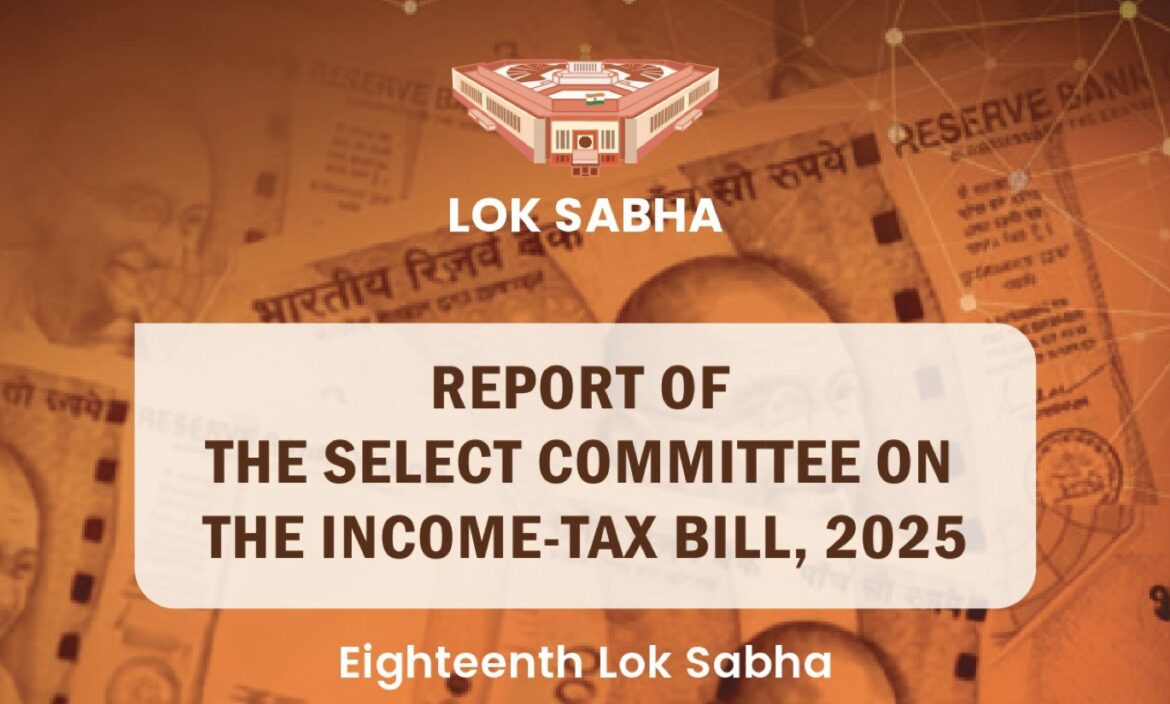India’s proposed Income-Tax Bill, 2025, set to replace the six-decade-old 1961 law, promises much-needed clarity and simplified compliance for Non-Resident Indians (NRIs)—a long-standing demand of the global Indian diaspora. The 31-member Select Committee of the Lok Sabha, tasked with scrutinizing the Bill, has submitted its findings to Parliament on July 21, suggesting 32 formal amendments and 566 recommendations, mostly aimed at correcting drafting inconsistencies and enhancing interpretability.
While the Bill maintains broad continuity with existing tax policy, it introduces clearer definitions, streamlined procedures, and reaffirmed exemptions that are especially relevant for NRIs dealing with capital gains, investment income, return filing, and transitioning back to Indian residency.
Select Committee Review: Focused Fixes, Not Overhaul
The Select Committee, led by BJP MP Baijayant Panda, presented a 4,584-page report, stating that the proposed changes are primarily clarificatory and were driven by stakeholder feedback—much of it from NRI professionals and tax experts abroad.
The Income-Tax Bill, 2025, tabled in February, is part of a broader move to modernize India’s taxation framework and reduce the Act’s size by nearly half. But for NRIs, the Bill offers reassurance rather than disruption.
“This is not a disruptive reform. It retains key concessions and makes compliance easier for global Indians,” a senior tax official said.
Key NRI-Specific Provisions and Clarifications
1. Continued Tax Concessions for Returning NRIs (Clause 217)
NRIs returning to India will continue to enjoy concessional tax treatment on income from foreign exchange assets even after acquiring resident status—as long as a declaration is filed. This provision mirrors Section 115H of the current Act.
The Select Committee endorsed this approach and left procedural suggestions—like integrating the declaration within the return form—for the rule-making stage.
2. No Return Filing for Specific NRI Incomes (Clause 216)
NRIs earning only investment income or long-term capital gains, with full tax already deducted at source, need not file a tax return.
This provision reiterates existing exemptions, reinforcing that NRIs with limited Indian-sourced passive income won’t face unnecessary compliance.
3. Capital Gains on Shares, Debentures: Currency-Based Calculation (Clause 215)
Capital gains for NRIs from the sale of Indian shares or debentures must be computed in the original foreign currency used for purchase and reconverted into INR—preserving the impact of currency fluctuations.
This clause builds on Section 115E and consolidates it with clearer calculation steps and scope.
4. Preferential Long-Term Capital Gains Tax Rate (Clause 197)
NRIs will continue to enjoy a flat 12.5% LTCG tax rate on gains exceeding ₹1,25,000 from specified securities—if not linked to a permanent establishment in India.
This matches the existing regime but codifies it with less ambiguity, offering predictability to NRI investors in stocks, mutual funds, or bonds.
5. Relief from Forex-Induced Gains
NRIs holding rupee-denominated bonds will not be taxed on capital gains arising purely from the rupee’s appreciation against foreign currency—a protection already in place, now restated with precision.
6. Indexation Rules: No Change, but Key Clarification
While the Bill defines indexation terms like “Cost Inflation Index,” it limits indexation benefits on property to resident individuals and HUFs, especially for assets acquired before July 23, 2024.
NRIs, by default, will continue with the concessional LTCG tax rate, but cannot use indexation to claim or carry forward losses. The distinction is now explicitly written into law, avoiding prior confusion.
Why It Matters for NRIs
The Income-Tax Bill, 2025, does not introduce major new obligations or higher rates for NRIs. Instead, it provides:
- Legal continuity for existing NRI tax benefits
- Greater procedural clarity in capital gains calculations
- Exemption reaffirmation for return filings in TDS-only scenarios
- Cleaner definitions around long-standing issues like indexation and forex gains
- Streamlined structure, reducing interpretational errors across borders
The Select Committee’s careful recommendations indicate that stakeholder inputs—including those from overseas Indians—were seriously considered.
“This is the most NRI-friendly tax update in years—not because it adds new perks, but because it avoids shocks and improves certainty,” Ritika Sharma, a tax expert said.
Next Steps
The Bill is expected to be debated and passed later this year, after incorporating the Select Committee’s proposed amendments. The 566 wider recommendations may also influence the framing of future rules, forms, and procedures—especially the push to embed NRI-specific declarations within tax return forms.
As India attempts to modernize its tax system, the proposed code signals that NRIs are being factored into core policymaking—not treated as an afterthought.
The Income-Tax Bill, 2025, reinforced by the Select Committee’s review, offers clarity without disruption for NRIs. From concessional tax treatment on foreign investments to procedural relief for return filers, India’s global citizens stand to benefit from a more transparent and predictable tax environment.






